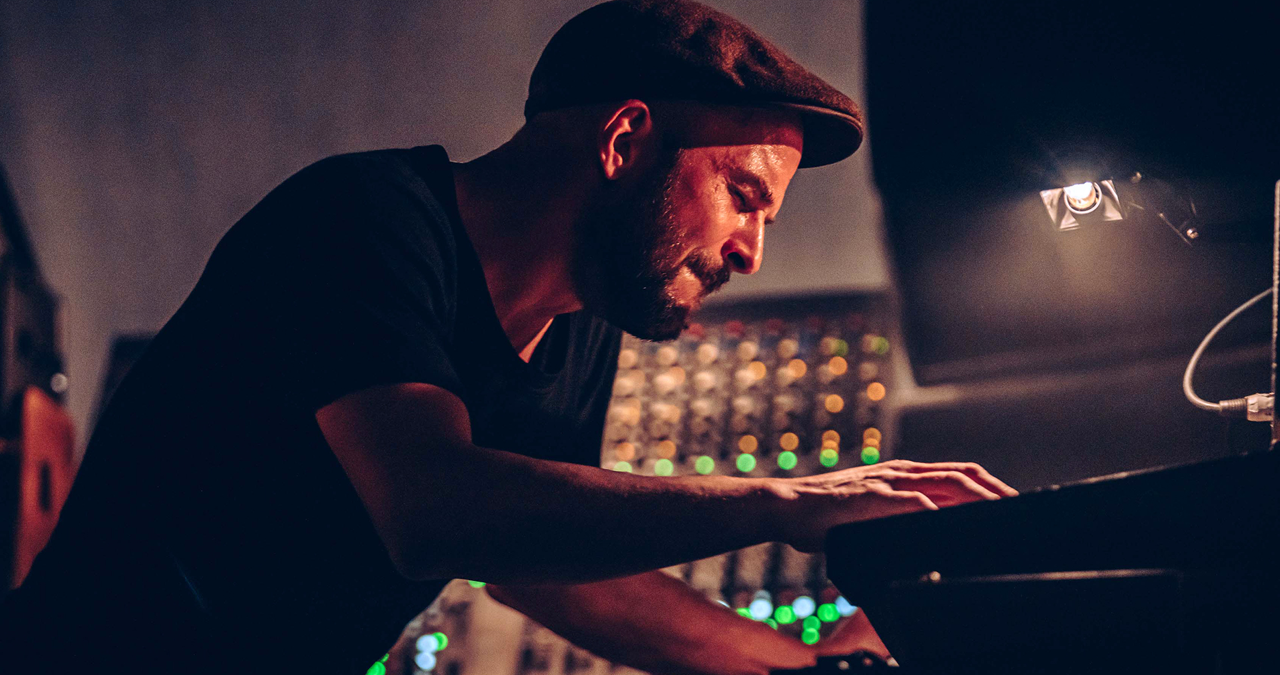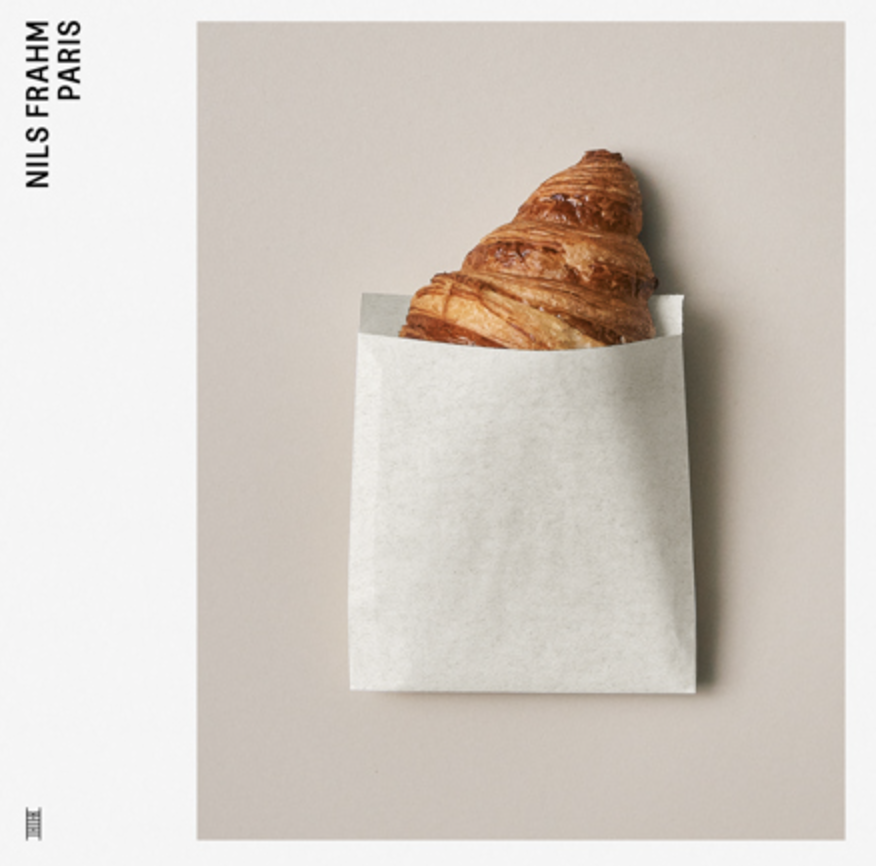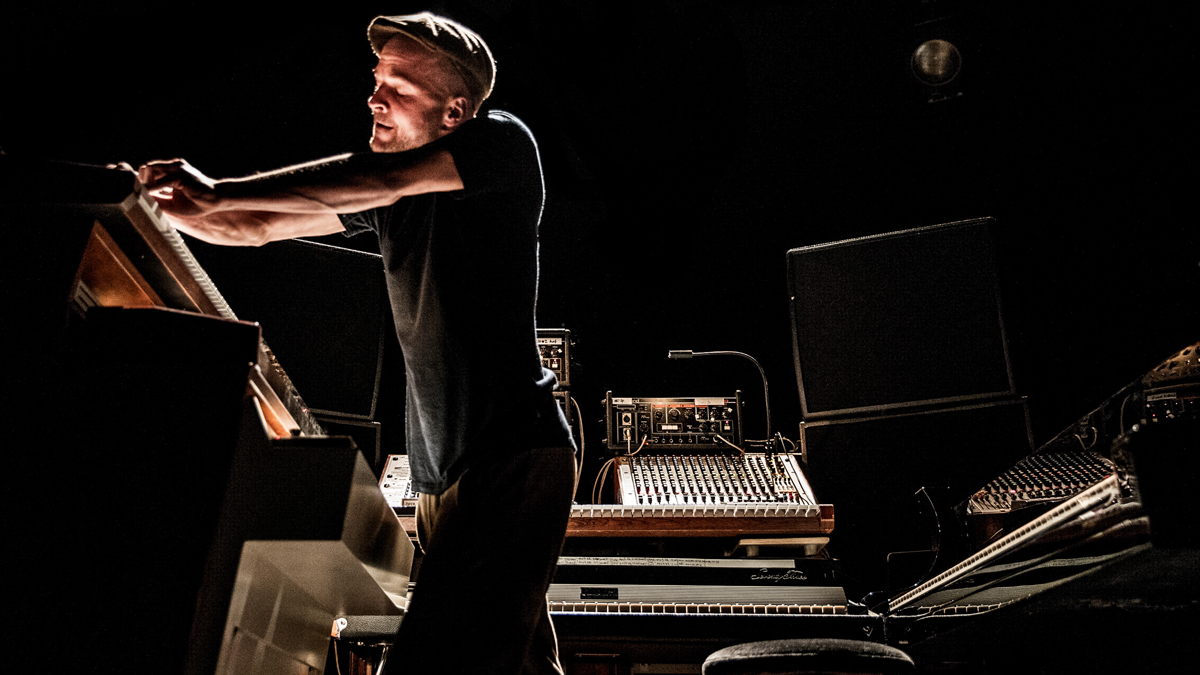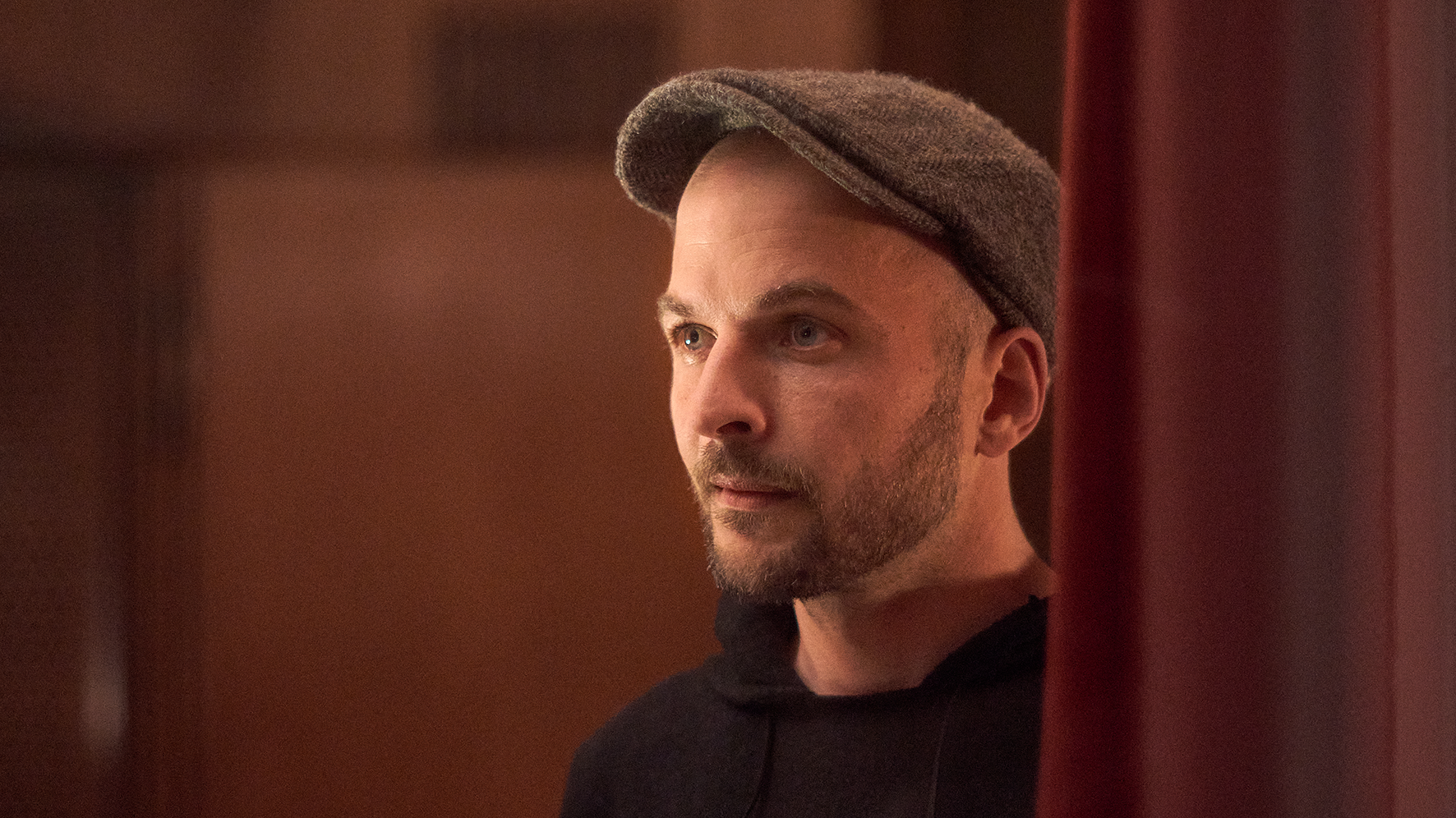
A student of classical piano who began his career as a jobbing musician, Berlin-based Nils Frahm has spent the last two decades blurring the lines between classical and contemporary music alongside peers such as Max Richter, Ólafur Arnalds and Sigur Rós.
Owing to his unconventional blend of piano and ambient electronic minimalism, Frahm has also had to push back at the industry’s exploitative attempts to pigeonhole him as a ‘neo classical’ artist.
Known for his mesmerising live performances at some of the most renowned concert venues in the world, following 18 months of touring Frahm’s latest 83-minute magnum opus, 'Paris', captures 10 tracks from his back catalogue performed at the illustrious Philharmonie de Paris in March 2024.
A wonderfully immersive listen, on-stage the German composer interconnects his set list through the improvised use of electronic and organic instruments, including his custom-built glass harmonica. We caught up with Nils to learn more about this instrument, and his approach to live performance more generally.
MusicRadar: As a prolific live performer, are you conscious of how tracks might translate to a live environment while you’re writing them?
Nils Frahm: Generally, not - that comes at a later point when I start to think about the live concert and take ideas from recent albums and modify them. I feel these two worlds are in need of completely different approaches, because everybody knows when they hear a live recording and it feels like they’ve not been there, for example, a bootleg, which often sounds weird and distant.
With Paris, I had to use studio production techniques to make it feel like it’s almost as good as the live experience, and that translation or conversion process is crucial.
MR: How do you balance mixing a live recording so that it sounds natural rather than digitally manipulated?
NF: If I over-listen to a certain song or project I only hear the problems and lose the feeling, yet those imperfections are part of what I do so I don’t strive to control every parameter.
For me, mixing a live record only takes four to six days, and mixing Paris was much easier than the Spaces album I released over ten years ago. That was a project where I recorded live songs on a tape deck over the course of many months.
Most of it sounded horrible because I played horribly, my instrument was not tuned and the recording went to shit because something went wrong with the acoustic feedback in the room. With my current setup, I’m working in a good studio and have a great live crew, so it’s a blast!

MR: To what extent was the Philharmonie de Paris helpful in capturing the live recording?
NF: To be honest, not every venue is generous in terms of supporting artists. They mostly want to make money and most of the classical venues in particular have a very arrogant attitude towards pop music, which is what I’m considered to be by most of them.
In the case of Philharmonie de Paris it was the opposite. They support arts from across the board and didn’t charge us insane fees to make a recording. In places like the Walt Disney Concert Hall in Hollywood, you wouldn’t be able to do that without paying a million dollars.
MR: Is it disappointing that the classical fraternity does not welcome artist like yourself who help bring classical music into mainstream recognition?
NF: I don’t know how many young people go to concerts to watch Beethoven, Mozart, Schubert or Schumann, or whether they start their musical education listening to people like Max Richter, Nils Frahm or Ólafur Arnalds, but that’s beside the point.
The point is that people like to see this type of music and it deserves a venue that is suitable for it. I don’t want to replace classical music because I love it and suggest that people watch concerts of music by Mozart, Bach and Beethoven. I don’t offer a modern version of that - I can only offer my music, but it’s a fact that 99% of my music is stolen from others.

MR: In the same way that all music is a by-product of something an artist has heard?
NF: As artists, we’ve stolen from so many people and places, but an audience is there that likes the result so I fight for it to be mine. I never wanted to create or be part of a genre, but I failed because a term has been created around the type of music I make called ‘neo classical’ or ‘modern classical’, which is so vacant and dumb. That showcases my inability to control the industry game - I’m just exploited like every other musician in history.
MR: Other than the neo or modern classical label, how does this exploitation affect you in real terms?
NF: When I’m playing in Philharmonies it appears that I’m a threat to Mozart, Bach and Beethoven because every time musicians like me play at a classical venue is a night when those composers are not heard.
I’d just like to contribute, but because of that there is a little bit of tyranny going on that you have to deal with. From that perspective, it’s normal to be under attack or involved in the discussion about “is this classical music?’ or ‘this is much worse than classical music’.
Sometimes I think, shit, what happened? Oasis never had to say in an interview, “Well, we are a little bit worse than the Beatles, but we make music anyway.”
MR: Although Paris features material from your entire back catalogue, it sounds a very consistent body of work. Did that require a lot of rehearsal?
NF: First, I really enjoy hearing that you feel like everything belongs together, but it actually took me about two years to find a way to arrange, play and perform the material so that it feels like a long journey or symphony. When I make a live show, I want to make it feel like one experience rather than lots of different songs or sections.
For example, I don’t want people to say, I really liked the third piece - when I hear that I think that’s a really bad compliment because I want them to enjoy the experience in its entirety. If you liked the third piece, it’s probably because the second piece and the one that follows are somehow linked.
That’s actually something I learned from working with filmmakers. In the editing room, if you take an image out from minute 22 it might change something really drastic at minute 78. Then you have to watch the whole movie again to verify you’re not destroying another element that you’re not aware of, so balancing a live show is like going into an editing room to make a definite version of a film.
MR: During the performance, how much space do you leave for improvisation?
NF: I don’t really try to reproduce a set, I try to develop it. Before I start the tour, I’ll spend time in rehearsals trying to find a starting point that leaves space for me to deal with while I’m performing. I’m not looking for consistency; I’m actually trying to open up everything and elevate those spaces in the set where something’s missing.
Then, all of a sudden, I start playing the set a little different, changing the tempo and the colour of the songs. In that respect, the whole tour is very much like a rehearsal. It’s an experimentation phase and when I get very close to arriving at a point where I no longer want to change the songs, which is usually at the end of a tour, we can make a recording.
MR: Obviously, the acoustics in your rehearsal space are completely different to a concert venue. How can you be sure your set will translate as envisioned?
NF: Earlier in my career I couldn’t bring my own PA equipment or internal setup, I’d have to rent a Fender Rhodes or have a different backline in every city, which makes every show sound drastically different every night.
Now, I have the luxury of inhabiting a rehearsal space where the reverb climb is almost two seconds, which is pretty nice because most concert venues are between one and three seconds. If you’re rehearsing in a very small room with dry acoustics, going on stage can be a shock and throw you off entirely.
MR: Do you have any advice for live performers to help counter that issue?
NF: Whether you’re a solo performer or a band, I’d suggest that before you play in a big room you rehearse in a big room without an audience and keep changing location. Then you will intuitively discover what translates well and what doesn’t.
I’m not a trained mixing engineer, but because I’ve mixed and listened to so much music on so many different speakers, and probably played in 1500 different rooms throughout my career, I can envision how something will sound in a different space. But that’s not a talent; it’s something I’ve learned over time.
MR: Take us through some of the instruments you use on stage. First, what do you specifically like about the wonderful-looking glass harmonica?
NF: The instrument was developed hundreds of years ago, but for people who have never seen it, it’s like an axis with glass bowls chromatically tuned and stacked into each other.
When you put your webbed fingers on the edges of the glass bowls they start to vibrate, resonate and make a sound that is really special. There’s almost no instrument I know of that you can compare it to. I’m not a flutist or a saxophonist, and maybe instruments you blow into might give you the same sensation, but as a pianist it’s a shockingly close way to touch sound and gets me even closer to the music.
I got the instrument from a builder in America who unfortunately died a couple of years ago, but the family was able to make one more instrument for me. It’s not only wonderful to perform with on-stage, but also looks great when you have some light shining through it.

MR: We noticed you wear special gloves. Is that due to static or do they change the tone of the instrument in some way?
NF: You usually play it with bare fingers and that makes the instrument sound a bit brighter and more like a square wave or sine wave, but the overtones can be a little bit scratchy.
I tried random gloves, and after using one pair the harmonica sounded more like a sine wave and more musical. When I play piano I mute it with felt, so to have a slightly modified glass harmonica also feels quite natural to me.
MR: What other tech is key to your live performance?
NF: The Juno-6 and the Juno-60 are not expensive machines, but they’re very flexible synths. I only use one sound from the Juno-6 in the entire show, so I don’t need to use the preset section much, but I really enjoy making vintage instruments sound timeless.
In fact, one of my paradigms is to liberate the sound of a dated synth. Other instruments I use that are very important are the Mellotron, prepared piano and Fender Rhodes. I also use the Space Echo because I like using effects until they start to become instruments in themselves.
Delay gives you the impression that there are more notes that you can actually play, but it all goes back to trying to make the whole set of instruments feel like one, big complex organ that blurs the edges and lines between sounds.
Nils Frahm’s ‘Paris’ is out Dec 6 on LEITER. For more information, visit Nils Frahm's official website







